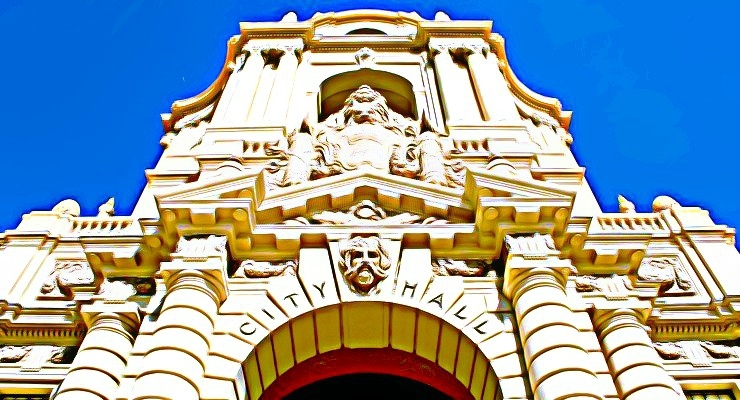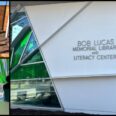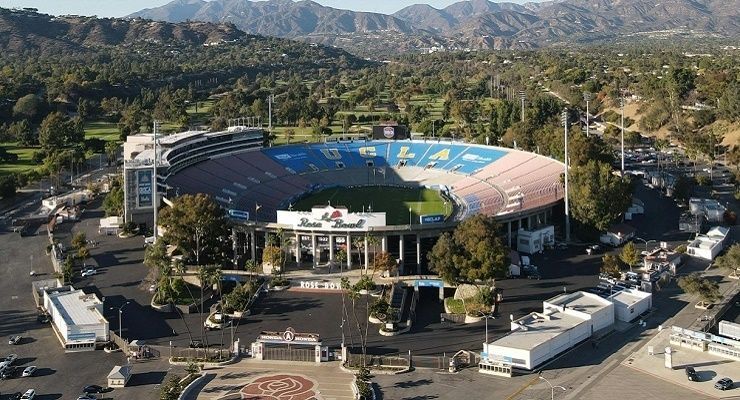
The Pasadena City Council voted Monday to approve a $32 million contract with New Flyer of America Inc. for the purchase of 17 hydrogen fuel cell electric buses, marking a milestone in the city’s transition to a zero-emission transit fleet. The new 40-foot buses are expected to replace aging natural gas models and enter service by spring 2027.
The decision followed extensive debate over the costs, environmental benefits and long-term risks of committing to hydrogen. Some other Southern California transit agencies are shifting to battery-electric fleets, while others, including Foothill Transit, are implementing hydrogen fuel cell buses.
The City has pledged to move to carbon free energy by 2030. Local advocates have in the past repeatedly called on the City to buy electric vehicles as part of that pledge.
Once delivered, the hydrogen buses will increase Pasadena Transit’s zero-emission fleet share from 2% to 46%, exceeding California’s Innovative Clean Transit regulation. The City Council’s Zero Emission Bus Rollout Plan, adopted in 2023, accelerates fleet conversion to zero-emission much sooner—by 2037—in comparison to the state requirement of 2040.
Transportation Director Joaquin Siques told the council the aging current fleet has become increasingly unreliable and costly to maintain.
Hydrogen fuel cell buses, which emit only water vapor, offer longer range and faster refueling compared to battery-electric models, making them more suitable for Pasadena’s service demands, city staff said.
A pilot battery-electric bus introduced in 2025 revealed that meeting daily service levels with battery buses alone would require doubling the fleet.
The contract, funded primarily through state and regional air quality grants totaling approximately $29 million, includes a 10% contingency. According to the staff report, the contract authorizes $14.2 million in requested appropriations, of which only about $3 million is local transit funding. The balance derives from state, regional, and federal grants. There is no impact to the General Fund.
City officials pointed to the importance of locking in the order before a September 30 price increase from the manufacturer.
The approved contract includes an option to purchase two additional hydrogen buses if funding permits.
A new hydrogen fueling station is planned in East Pasadena (at 159 S. Kinneloa Avenue). The project’s grants supporting this station are from State infrastructure programs. The station design may accommodate both hydrogen and battery-electric technologies for future flexibility.
Councilmember Rick Cole cast the sole dissenting vote, citing concerns over financial risk and the environmental efficacy of hydrogen fuel. He argued that green hydrogen is not yet viable at scale and that solar-powered battery buses would be more energy-efficient.
Cole argued hydrogen is “not zero emission,” citing the inefficiency of producing and transporting fuel. He proposed delaying the vote to explore alternatives, including smaller electric buses.
Other councilmembers defended the plan, pointing to the reliability, range, and grant-specific funding tied to hydrogen technology.
Councilmember Gene Masuda and Councilmember Steve Madison expressed confidence in staff’s analysis and emphasized the importance of seizing external funding opportunities.
Mayor Victor Gordo underscored the need for larger buses to accommodate future ridership growth and fulfill the city’s General Plan goals.
The council’s approval authorizes staff to finalize the contract. The hydrogen buses will undergo testing and commissioning before entering service, bringing Pasadena closer to its clean transit goals. Officials noted that battery-electric technology may play a larger role in the future, but for now, the hydrogen investment represents a strategic upgrade for a heavily used and aging fleet.
“Eighty percent of our riders have no other transportation option,” Gordo said. “This isn’t just a financial decision — it’s about delivering a resilient, clean transit system for our community.”


















